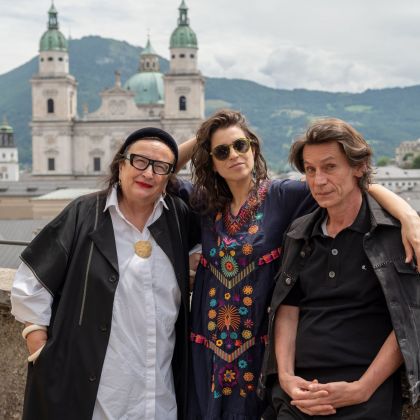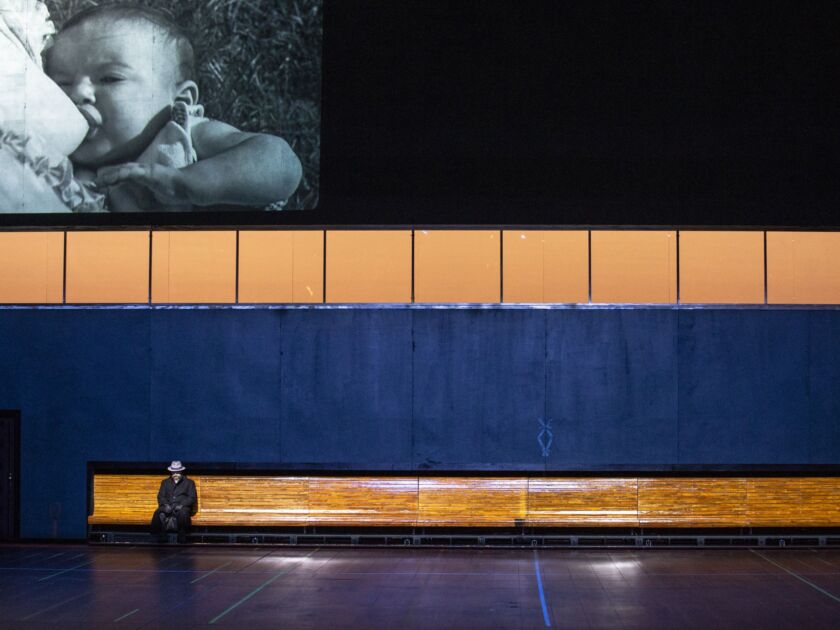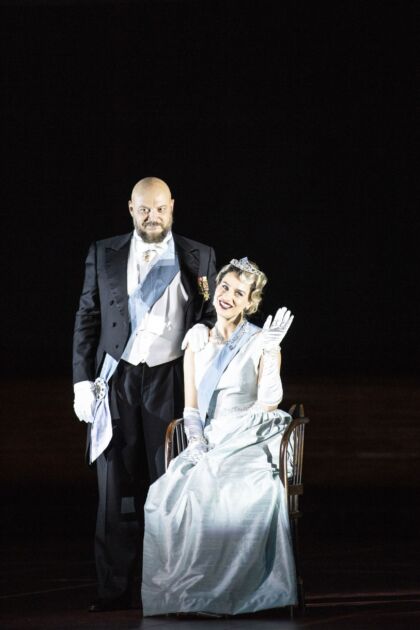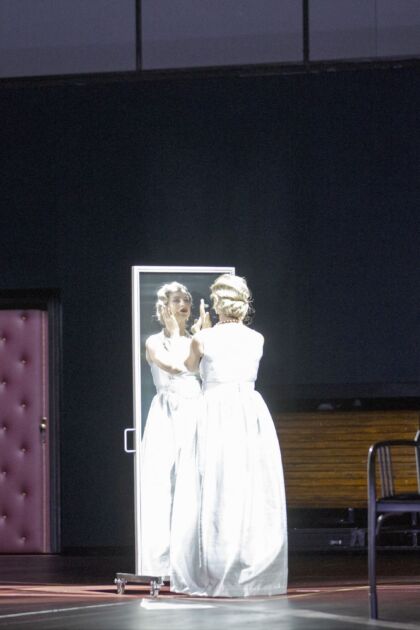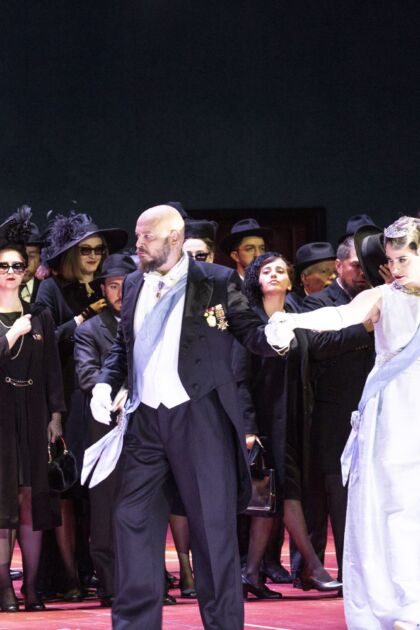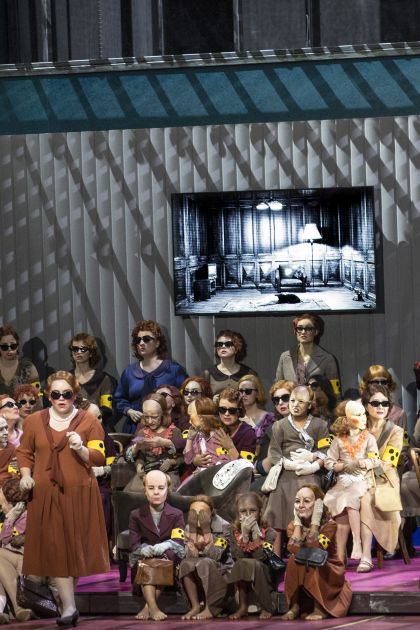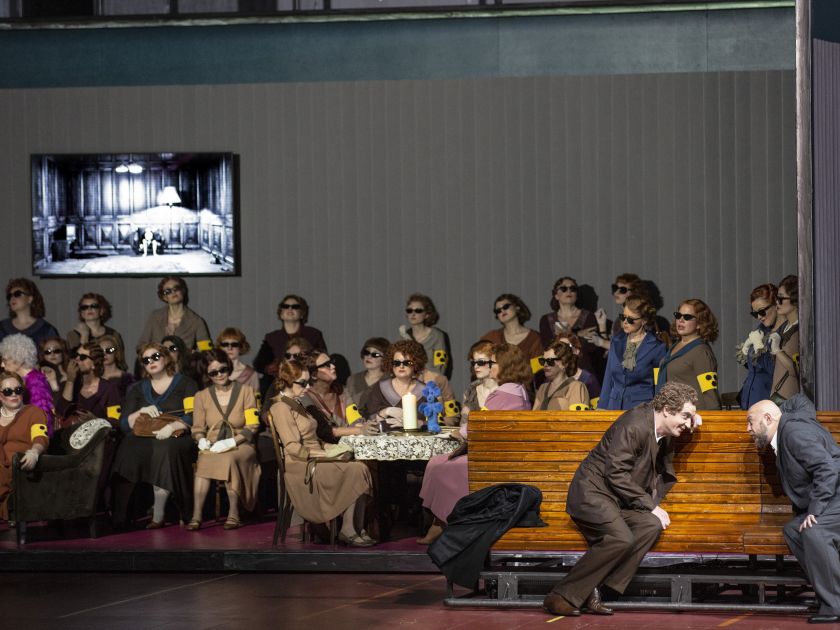Oedipus faced with the mysteries of the oracle, Macbeth confronted by the witches’ prophecies: a sudden dictum from another world — and just a few words suffice to change a life utterly. Moira reveals itself. While Oedipus seeks to escape the tragic destiny that is augured for him, in Macbeth’s case a twofold process is set in motion. First, he reacts to the announcement that he will soon become king by attempting to scale these promised heights, and acts accordingly: by killing. Having attained crown and power, he then duly defies the second part of the prophecy: by killing again. After this he becomes the victim of his madness, his fear, his moral downfall: by killing again and again.
Macbeth has torn the veil of reality. He has ceded space to witchcraft instead of simply mocking it, given credence to utterances that reason should have dismissed. Once the veil has been rent, a vertiginous abyss opens up. Macbeth feels drawn to the dark, in which he recognizes himself, and plunges into it before finally meeting his death.
Macbeth is the story of a man who is pursued by his doubts. As a remedy for his inner tribulation, he seeks to find in the signs around him revelations from another world, promises for the future — meant for him, tormented as he is by the uncertainty of the present.
Macbeth is the story of a soldier, a warrior, a man who brings death and whose death is sought. Macbeth has seen what we have certainly never seen: bodies destroyed and crushed, life extinguished. Macbeth is the one who will never forget what we have never seen. He knows that existence hangs by a silken thread. Does everything go back to the divine Fates with their spindles who hold the power over life and death, the Moirai or Parcae? Is there an unknown, unfathomable meaning concealed behind appearances? Does an invisible architect direct our lives? Are we merely a plaything of his will? What about our free will? Belief in the daímōn is liberation and constraint at the same time. It frees us from responsibility for our actions, because these are governed by something that is greater than ourselves. But belief in the daímōn hinders our desires when they challenge the primacy of that impervious force from which everything issues.
Macbeth is the story of a couple to whom nature or fate has denied offspring. While Macbeth relentlessly brings death, he is denied the chance to bestow life. And in this case, not bestowing life means being aware of his own approaching death. On the path to the destruction and madness to which the couple gradually fall victim, their shared loneliness binds them before separating them — before both die alone, with bloodstained soul or harried by a moving wood. But before this they seal a pact of love and hate, which thanks to Shakespeare and Verdi makes them one of the most fascinating and fearsome couples in literature and the history of opera.
Verdi’s Macbeth resembles a Greek tragedy and a thriller in equal measure. Spawned by supernatural intervention, a criminal mentality takes complete hold of an individual’s mind with an inexorability conveyed in the music — like a river that having burst its banks overwhelms the furthest reaches of the landscape, dooming it to certain destruction. Macbeth deals with our vulnerability and our need to believe so that we can cope with the unknown.
An opera of this kind demands not only outstanding voices but also outstanding actors. Directed by Krzysztof Warlikowski, who has brought many major productions of works based on Greek tragedies and Shakespeare to the stage, and under the baton of Philippe Jordan, Vladislav Sulimsky and Asmik Grigorian embody a couple united in their passion, madness and bloody deeds.
Christian Longchamp
Translation: Sophie Kidd
